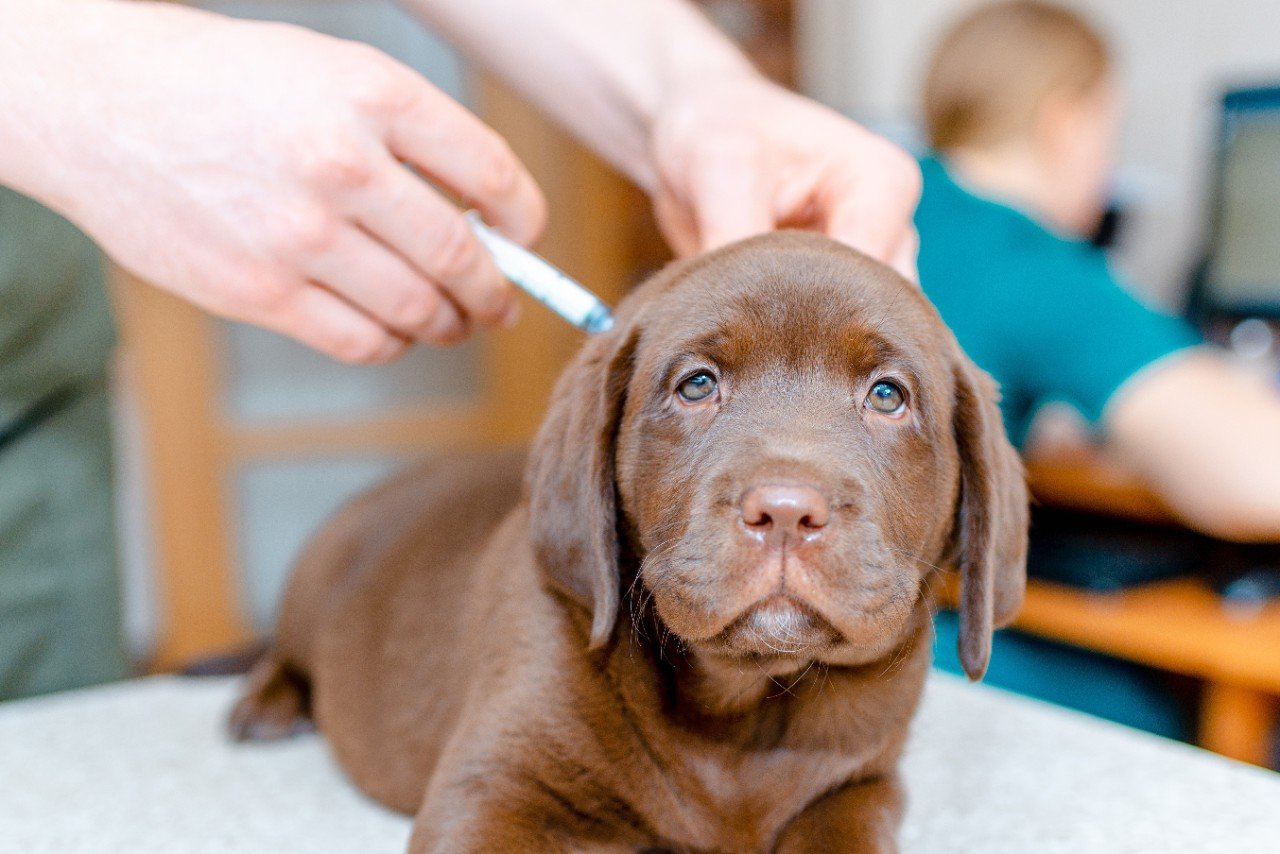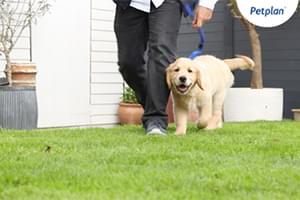What to do before you bring your new puppy home
Quick Links
Set the ground rules early
Which training techniques will you use?
What will your puppy’s routine look like?
Dogs thrive on routine, so having a rough structure outlined in advance will help your puppy settle in as quickly as possible.
Will one person be responsible for feeding your puppy, or will whoever gets up first fill their food bowl? How will you make sure you’re not overfeeding your new pup—bearing in mind most puppies will happily eat multiple breakfasts! Assigning one primary caregiver is a good idea, or writing out a feeding chart and ticking off each meal. Getting children involved in feeding your new addition can help them feel involved, but always do this under supervision of an adult.
You’ll also need to consider how to manage frequent toilet breaks to help with toilet training, keeping to a regular bedtime routine, and making plenty of time for playing with your new puppy to keep them entertained and build a bond between you.
If you’re bringing a puppy home when you already have another dog, follow our tips for how to successfully introduce them. Again, having a plan for how to approach this will make things much easier.
Where will your puppy sleep?
While it might be tempting to allow your puppy to sleep in your bed for the first few nights, it’s generally not a good idea. Making this exception at the start means training your puppy to sleep in a crate or their own bed will then become a lot harder. Crate training your puppy can give them a safe space to sleep at night where they can’t get into trouble.
Adding a hot water bottle to your puppy’s bed can help them feel reassured. Making them a den by placing a blanket over their crate is also a good idea.
Puppies have plenty of energy but they also tire easily. They’ll need naps during the day, so make sure everyone knows not to disturb them as they recharge their batteries.
Decide in advance who will check on your puppy overnight–you may need to set your alarm for every few hours for the first few nights and allow your puppy out to relieve themselves, and consider investing in some puppy pads, in case of any accidents.
Puppy-proof your home
If you’re a first-time dog owner, your home and garden may have a few hazards that could be dangerous to a curious puppy. Leaving your puppy unsupervised for even a few moments can result in chewed cables or your puppy eating something poisonous. Look around your house from ‘puppy level’ and remove or secure anything you think could be a hazard.
Using a child gate to portion off a small area of your house can help your puppy feel less overwhelmed. As they grow in confidence you can open up more rooms for them to explore. Using the kitchen is a good idea, as you’ll usually have easy-to-clean floors for those little accidents.
Make sure your garden is secure and check for any gaps in your fences. Puppies can wriggle through surprisingly small spaces! Dog theft is increasing and some more valuable or unusual breeds are particularly attractive targets. Adding security lights or a bell on your gate can deter would-be-thieves from entering your property.
Stock up on supplies
Finding and registering with a vet
Petplan is a trading name of Pet Plan Limited (Registered in England No. 1282939) and Allianz Insurance plc (Registered in England No. 84638), Registered office: 57 Ladymead, Guildford, Surrey GU1 1DB.
Pet Plan Limited is authorised and regulated by the Financial Conduct Authority. Financial Services Register No. 311969. Allianz Insurance plc is authorised by the Prudential Regulation Authority and regulated by the Financial Conduct Authority and the Prudential Regulation Authority. Financial Services Register No. 121849. Pet Plan Limited is a subsidiary of Allianz Insurance plc.
















